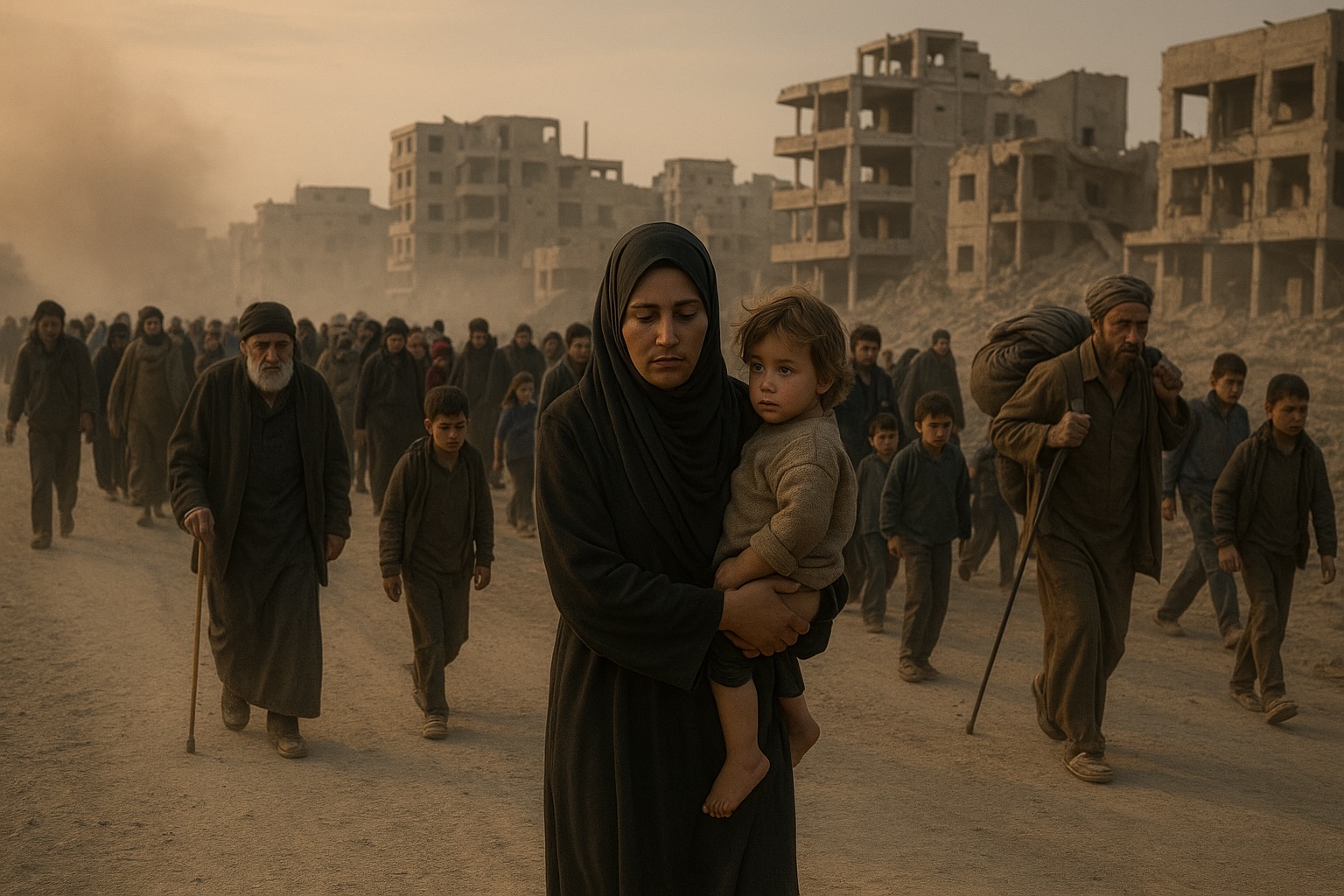This week, the city of Raqqa is witnessing a new wave of displacement, as residents of Palmyra (Tadmur), Al-Sukhna, and surrounding areas flee toward Raqqa and its countryside. The displacement is the result of ongoing battles between ISIS on one side and regime forces along with allied militias on the other.
The intensity of Russian airstrikes on Palmyra increased significantly, causing the majority of the population to flee before the most recent ground offensive. Many families initially tried to shelter on the outskirts of the city, but as ground forces advanced, they were forced to flee further — ultimately arriving in Raqqa.
Thousands of displaced families have now arrived in Raqqa. Those who can afford it are looking for houses to rent, while others have sought refuge in school buildings. ISIS has allowed some families to stay in schools, which has led to an increase in the number of makeshift shelters across the city. Several schools now house displaced families from Palmyra who had previously fled earlier battles. Despite this, there are no humanitarian organizations or support centers in Raqqa to assist these families. The ISIS administration offers nothing but temporary permission to reside in the buildings — and it had previously banned displaced people from staying in schools at all.
Some of the newly arrived families did not settle in Raqqa but used it as a transit point, heading toward opposition-held areas in the Aleppo and Idlib countryside. Others hoped to flee to Turkish territory, though reaching Turkey from Raqqa is extremely difficult. The YPG (People’s Protection Units) militias block access to northern areas, only allowing entry with recommendations from local residents.
Back in 2012–2013, Raqqa received over a million displaced people from Deir ez-Zor, the Aleppo countryside, and other regions. At the time, dozens of charities and organizations provided aid — but ISIS shut all of them down after taking control of the city. Today, displaced people in Raqqa may outnumber the original residents, and many of them are in better financial shape than locals, who remain crushed by ISIS-imposed rules and taxes.

